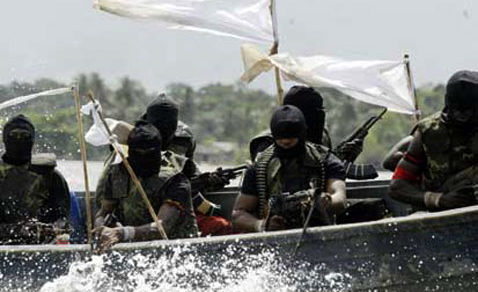Encouraging signs, or a temporary lull in piracy in the Gulf of Guinea?

Peter Adams, special advisor to the International Maritime Organization secretary general and head of maritime security at the UN body, writes for Splash today on the crime scene in the waters off West Africa.
A secure maritime environment underpins maritime growth. The facilitating and regulating of the safety and security of international shipping are central roles of the International Maritime Organization (IMO), the United Nations specialised agency with a remit to ensure safe, secure and environment-friendly shipping.
A safe and secure Gulf of Guinea can provide stability, attract investment, and stimulate growth and prosperity in the blue economy and for the coastal population across the region.
The Gulf of Guinea has been one of the worlds hot spots for piracy and armed robbery over the last decade. However, piracy incidents in the Gulf of Guinea have significantly fallen in the first three quarters of 2021, according to data on the IMO Global Integrated Shipping Information System (GISIS) Piracy and Armed Robbery database.
A secure maritime environment underpins maritime growth
The question is why? Are these figures a consequence of the positive strides taken by the coastal states, raising their counter piracy efforts, combined with a significant increase in non-regional support?
During recent months there certainly have been signs of progress. Ghana has passed anti-piracy legislation, and both Togo and Nigeria have achieved piracy convictions. Nigeria’s Deep Blue and Falcon Eye projects are both operational and patrolling by sea and air in the creeks of the Niger Delta, from where pirate groups traditionally operate. Aligned to this is Nigeria’s new Lagos based C4I centre, designed to coordinate Nigeria’s intelligence-led response. These initiatives can deliver deterrence and intelligence-led enforcement.
Brazilian, British, French, Italian and Spanishwarships are currently providing additional support at sea. The EU Coordinated Maritime Presences (CMP) provide ongoing EU support to the region, whilst both French and United States-led naval exercises focus on capacity building and interoperability. The established G7++ Friends of the Gulf of Guinea, together with the recently formed Gulf of Guinea Maritime Collaboration Forum on Shared Awareness and Deconfliction (GoG-MCF/SHADE), provide international and industry-supported forums to coordinate non-regional support.
Beyond this, there are a raft of capacity building support providers, including United Nations agencies, Non-Government Organizations, Civil Society Organizations, bi-lateral agreements, and support to resolve cases of hijacking and seafarer hostage taking.
If these initiatives are successfully supressing the number of piracy incidents, then the key will be to maintain the momentum and ensure the sustainability of these efforts. Critical to this will be effective use of Maritime Domain Awareness (MDA) and the contribution of the Maritime Domain Awareness for Trade – Gulf of Guinea (MDAT-GoG), a combined United Kingdom and French MDA capability; and industry support, to empower the region to avoid, deter, delay, and respond to maritime criminality.
As part of this effort, IMO has facilitated regionally led, expert level meetings with a view to refreshing the Yaoundé Code of Conduct (YCoC), a regional maritime security architecture adopted by West and Central African nations in 2013.
The region requires an efficient, operational Yaoundé Architecture. Regional leadership must efficiently coordinate and integrate all counter piracy operations into a cohesive deterrent and response mechanism. Furthermore, effective coordination will also serve to address other significant maritime issues, ranging from illegal, unreported and unregulated fishing, to oil theft.
Beyond this, IMO is also supporting Nigeria’s development of a National Maritime Security Strategy (NMSS) through a “whole of government approach”. This innovative process aims to deliver an agreed, evidenced national strategy, identifying critical gaps and capability overlaps, empowering leaders to shape and more effectively utilise resources. . These IMO supported initiatives – focussed on sustainable, regionally led frameworks – can build on the current momentum that has seen the recent fall in reported incidents.
It remains too soon to definitively determine why the piracy numbers have fallen. Until the end of the first quarter of 2022, it will not be possible to assess if this is a long-term trend. Certainly, significant levels of regional and non-regional support are in place, and it is crucial that these commitments are maintained to establish the safe and secure maritime environment required to attract investment, stimulate growth and bring prosperity to the coastal regions.
Only then will the underlying cause of piracy begin to be addressed.
